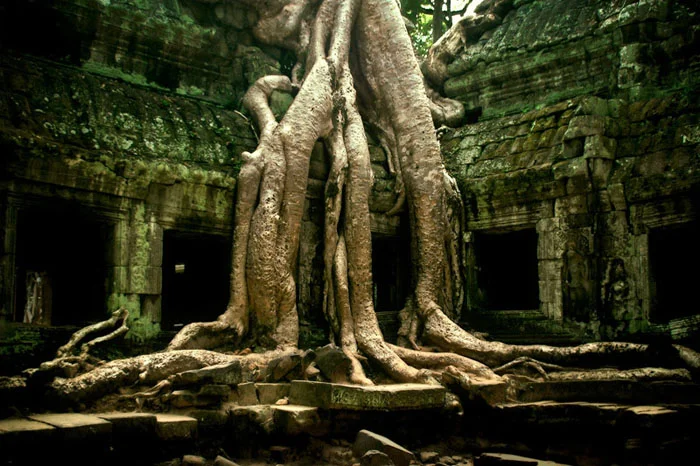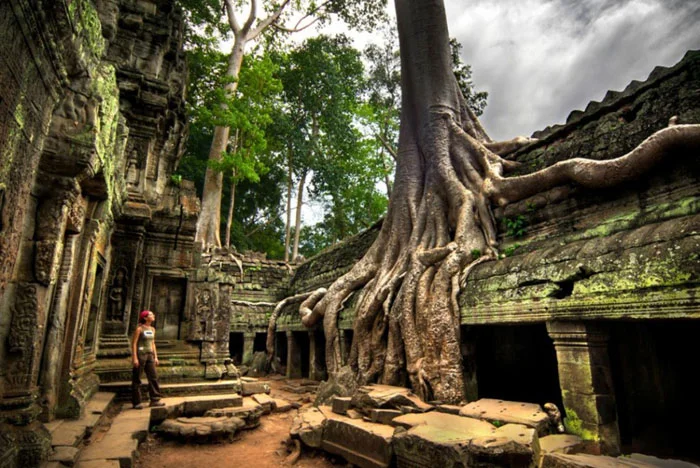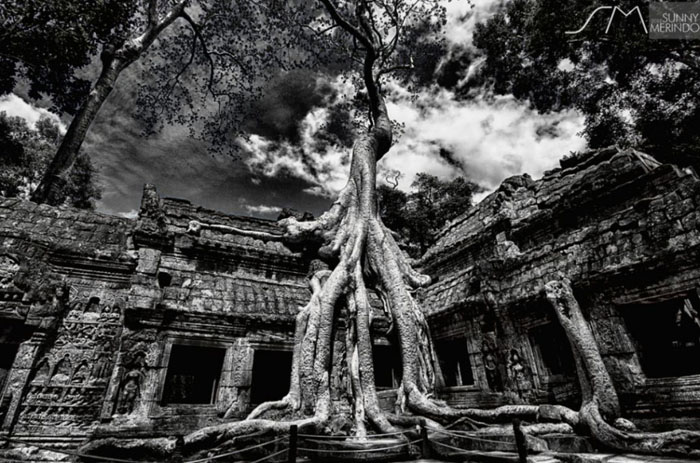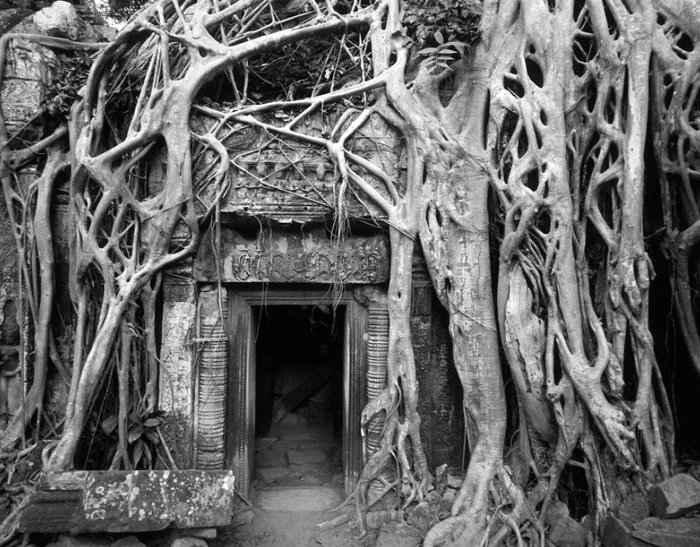Ta Prohm Temple Is Home To Cambodia's Female Apsara Spirits
/I am enraptured today with these images of Ta Prohm Temple in Cambodia. Located in Angkor, Siem Reap Province, Cambodia and built in the Bayon style in the late 12th and early 13th centuried, the temple was originally called Rajavihara.
Today the conservation and restoration of Ta Prohm — but in a style that pays homage to its current state of nature gone wild — is a partnership between the Archaelogical Survey of India and the APSARA (Authority for the Protection and Management of Angkor and the Region of Siem Reap).
The authorities at APSARA know that Apsara (also spelled as Apsarasa) is a female spirit of the clouds and waters in both Hindu and Buddhist myths. In fact, apsaras are an important motif in the stone bas-reliefs of the Angkorian temples built in Cambodia in the 8th-13th centuries AD.
Several years ago, I quoted Cambodian writer Kounila Keo, who contrasted the history of women in Cambodia and America:
Unlike America, for example, and its “founding fathers,” a precedent is already in place for female leadership in Cambodia. Queen Lieu Ye, the country’s original monarch, who ruled over a group of Khmer tribes, is known to have formed the Kingdom called Funan, or Nokor Phnom, setting a standard for women as premieres, not only in the family, but in society as a whole.
In the memory of Queen Lieu Ye’s matriarchy, the word mae (mother) continues to connote the honour of the female-being and, more importantly, traits of ‘greatness, leadership, or of being the essential element’. For example, you still have gender neutral words such as mae-torp (military commander), mae-khum (chief of commune), referring to anyone who holds these positions of power.
It is also worth noting that Cambodians address their parents and grandparents with the female first; “mother and father,” for example, or “grandmother and grandfather.”
Looking at these images I feel the fecundity of female spirits, the deep roots of nature and very substance of our beings. But I also think of the assault on women’s rights that has become a core value of so many of the world’s religions, including Christianity with its patriarchal views. ~ Anne




























































